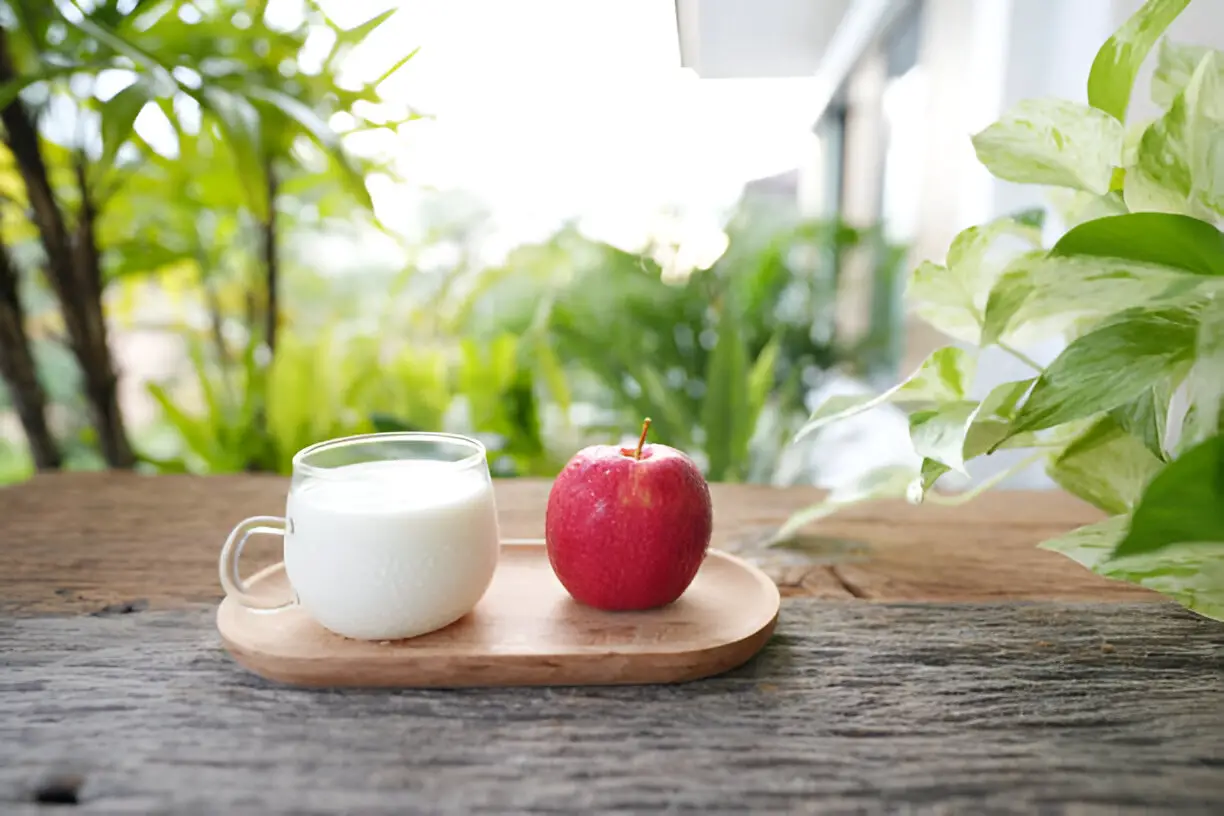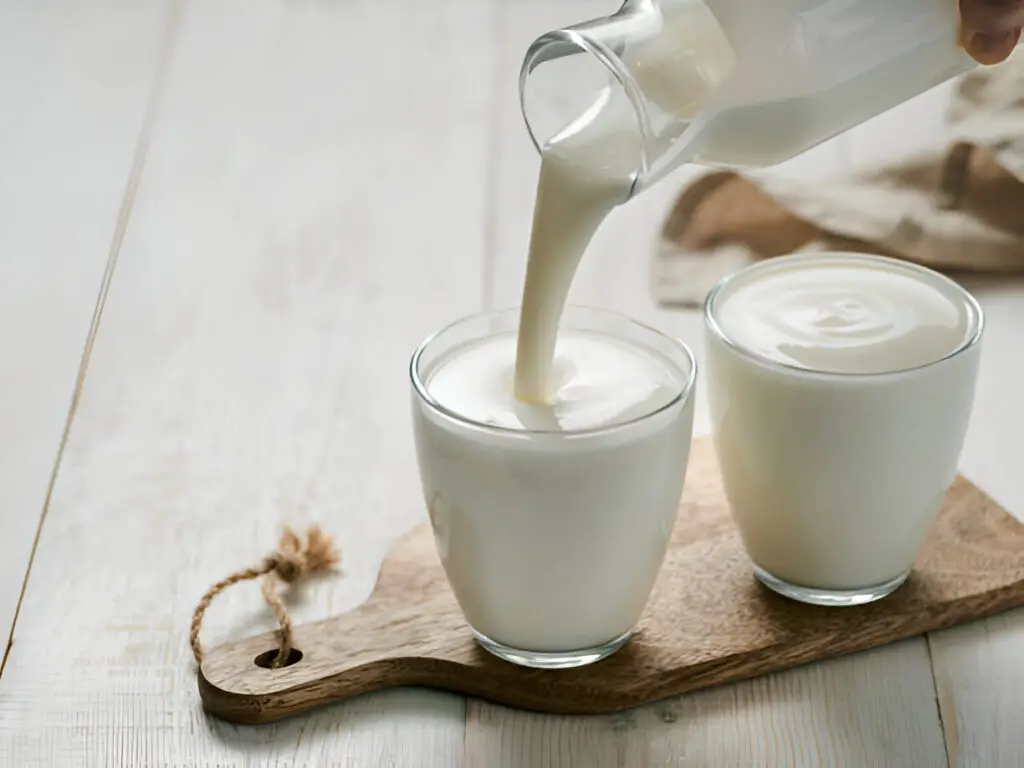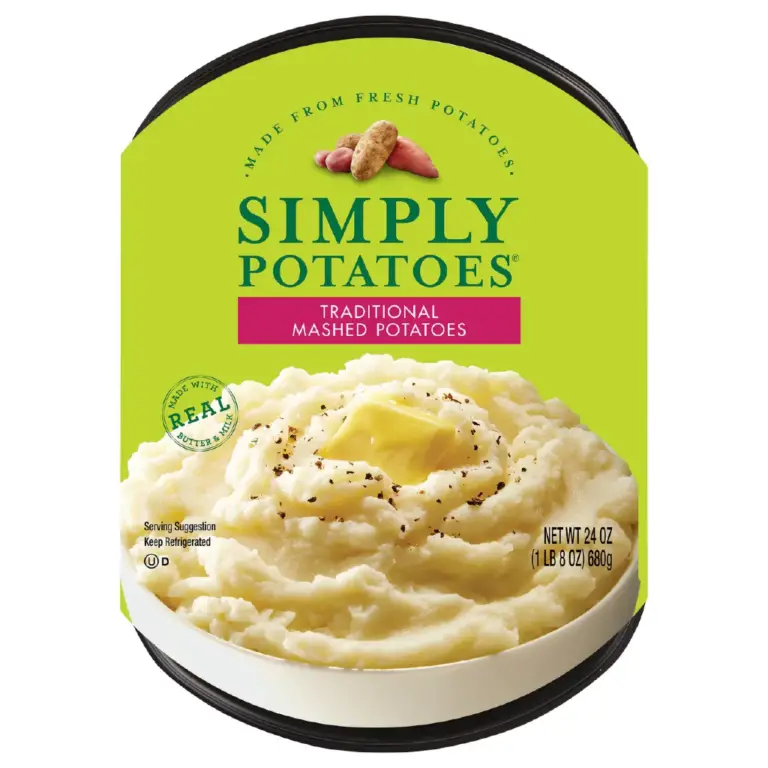Can Drinking Milk After an Apple Really Cause Issues?

If you’ve ever been caught in the middle of a snack dilemma, you’ve probably wondered: is it okay to drink milk after eating an apple? After all, these two items seem to be harmless on their own, right?
An apple a day keeps the doctor away, and milk is a staple in many people’s diets. But somehow, when combined, there’s a nagging suspicion that something might go awry.
Well, let’s unravel the mystery and explore whether drinking milk after an apple is a good idea or if it’s just another food myth to toss into the garbage bin.
The Age-Old Myth: Milk and Fruit Don’t Mix

The idea that milk and fruit should never mix has been around for centuries. Some people swear by this belief, claiming that the two together can lead to digestive issues like bloating, discomfort, or even a stomach upset. Others, on the other hand, happily sip on their milkshake with fruit and have no qualms about it.
So, what gives? Should we trust our gut (literally) or trust our taste buds?
Breaking Down the Science: What’s Happening in Your Stomach?
Before diving into the myths, let’s take a quick trip through your digestive system and see what actually happens when you consume milk and an apple together.
- Milk Digestion – When you drink milk, your stomach works to break down the lactose (the sugar found in milk) using an enzyme called lactase. For many people, this process goes smoothly. However, some people are lactose intolerant, meaning they don’t have enough lactase to break down the lactose effectively. This can cause bloating, cramps, and gas.
- Apple Digestion – Apples, on the other hand, contain fiber, fructose, and a variety of natural sugars. Your body digests these sugars and fibers with the help of enzymes, but they tend to take a bit longer to process compared to simpler carbohydrates. The fiber also slows down the digestive process, which is usually a good thing but can sometimes lead to fermentation in the gut, leading to gas or bloating in sensitive individuals.
| Check out: Can We Drink Milk After Eating Tomato Ketchup? |
Is There Any Truth to the Milk and Fruit Conflict?
It’s true that in some cases, eating milk and fruit together might cause minor discomfort, especially if you’re sensitive to lactose or have a sluggish digestive system. Here’s the lowdown:
- Lactose Sensitivity: If you’re lactose intolerant, you might experience gas, bloating, or diarrhea when drinking milk, regardless of what you’ve eaten with it. Apples, however, don’t really impact this process—it’s all about the milk.
- Fruit Fermentation: Some people believe that eating fruits with high fiber content like apples can ferment when combined with dairy products, causing gas or bloating. The theory here is that the fruit’s sugars and the milk’s proteins don’t digest well together, leading to indigestion. While this could theoretically happen in some sensitive individuals, it’s not universally true for everyone. In fact, your digestive system is pretty efficient at handling both foods at once.
- Digestive Timeframes: Fruits like apples tend to digest quickly, while milk, due to its protein content, may take a little longer. Some people think the delay in digestion causes a “traffic jam” in your stomach, leading to discomfort. In reality, the digestive system is usually pretty adept at handling multiple food types at once, but it can depend on the individual.
The Science Says… It Depends
For most people, there’s no real danger in drinking milk after an apple. Your stomach is designed to handle a variety of foods simultaneously, and unless you have lactose intolerance or a specific sensitivity to one of these foods, you’re unlikely to experience any major issues.
If you do find yourself feeling uncomfortable after combining milk and fruit, it could be worth exploring other possibilities, such as lactose-free milk or choosing a different fruit that doesn’t have as much sugar or fiber.
Is It a Cultural Thing?
In some cultures, pairing milk and fruit is a common practice—think of those refreshing milkshakes made with bananas or other fruits. In India, for example, it’s not uncommon to have a mango lassi (a yogurt-based drink) paired with fruit as a snack or dessert. In contrast, Western food traditions often suggest keeping fruit and dairy separate.
This cultural divide could be where the myth comes from. People in certain cultures might simply have been more sensitive to dairy or fruit combinations, leading to the idea that the two shouldn’t mix.
Benefits of Milk and Apples: The Silver Lining
Before you banish this duo forever, let’s take a moment to recognize the health benefits of both milk and apples on their own—and even when enjoyed together.
- Apples: Rich in fiber, vitamins, and antioxidants, apples are a great snack that can help regulate digestion, lower cholesterol, and stabilize blood sugar levels. Plus, they’re low in calories, making them a perfect snack for anyone watching their weight.
- Milk: Milk is packed with calcium, vitamin D, and protein. These nutrients support bone health, muscle repair, and overall well-being. Plus, milk’s creamy texture can provide a feeling of fullness, making it an excellent addition to a balanced diet.
When consumed together, milk and apples can create a snack that offers a healthy balance of vitamins, minerals, fiber, and protein. So, if your stomach can handle it, you’ve got yourself a nutritious snack.
The Final Verdict: Should You Drink Milk After an Apple?
It all boils down to your own body and how it reacts to certain foods. If you’re someone who has no issue with dairy, feel free to enjoy a glass of milk with your apple. It might even make a satisfying snack if you’re looking to fuel up during the day. But if you experience discomfort—whether it’s from the milk, the apple, or the combination of the two—it might be time to try adjusting your snack choices.
As a general rule, listen to your body. If your stomach feels uneasy, don’t force it. There’s no reason to put yourself through unnecessary discomfort just to enjoy a snack, especially when there are plenty of other options out there that won’t have the same effect.
| Check out: Can You Drink Milk After Eating Salty Food? |
Alternatives to Consider
If you’re not sure about combining milk and apples but still want a wholesome snack, here are some options:
| Snack Idea | Benefits | Why It Works |
| Apple and Peanut Butter | High in protein and healthy fats | Peanut butter balances the sugars and fiber of the apple, providing a filling and nutritious snack. |
| Yogurt and Berries | Probiotic-rich and high in antioxidants | Yogurt contains probiotics, which can aid digestion, and berries complement it with extra fiber. |
| Oatmeal with Apple | Packed with fiber and energy | Oatmeal provides slow-releasing energy, and apples add a sweet, fiber-packed crunch. |
In Conclusion: A Matter of Personal Preference
At the end of the day, whether or not drinking milk after an apple causes issues largely depends on your unique digestive system. For most of us, it’s nothing to worry about. But if you’re one of those people who feels bloated or uncomfortable, it’s worth experimenting with different combinations of foods to see what works best for you.
Your gut is your guide, so trust it. And remember—there’s no one-size-fits-all answer when it comes to food. If you enjoy the taste and have no problem with the combination, then drink up! But if it causes you discomfort, maybe it’s time to rethink that snack. Your body will always tell you what it can handle.






